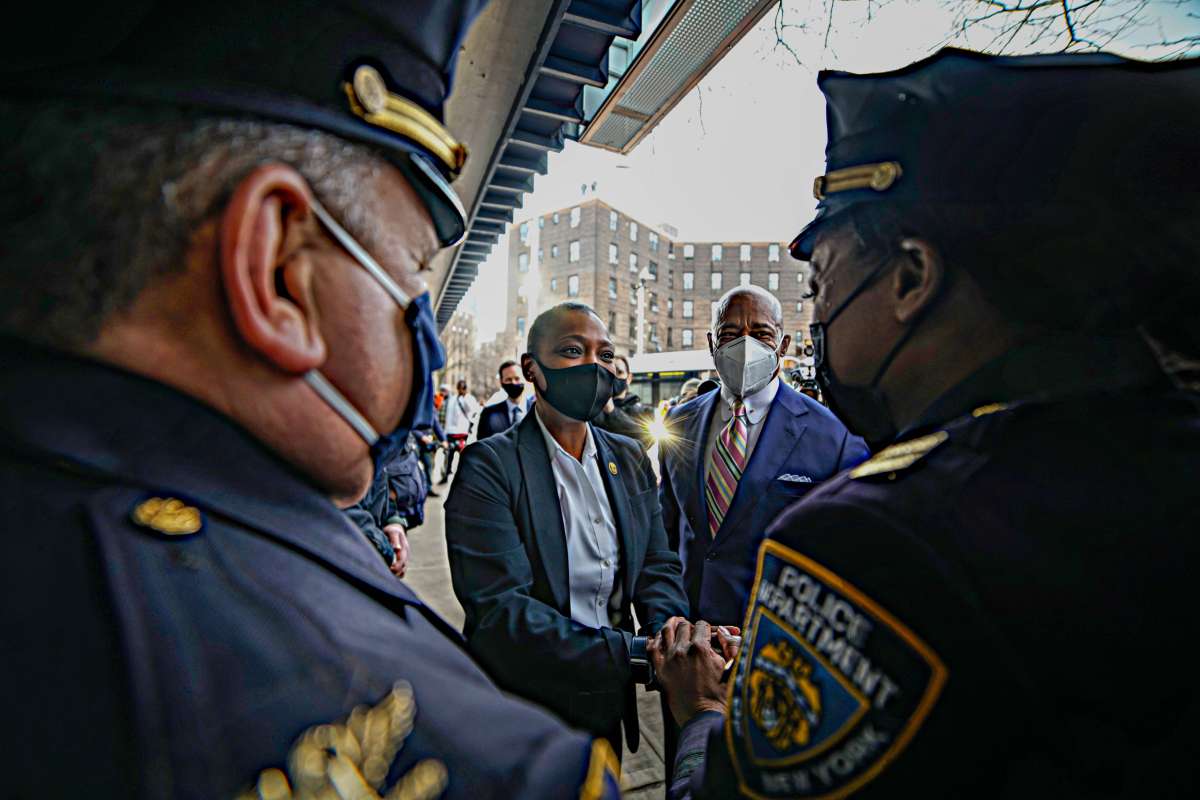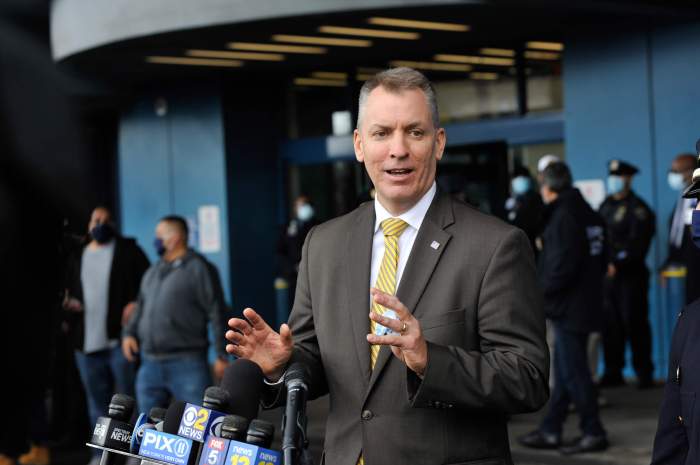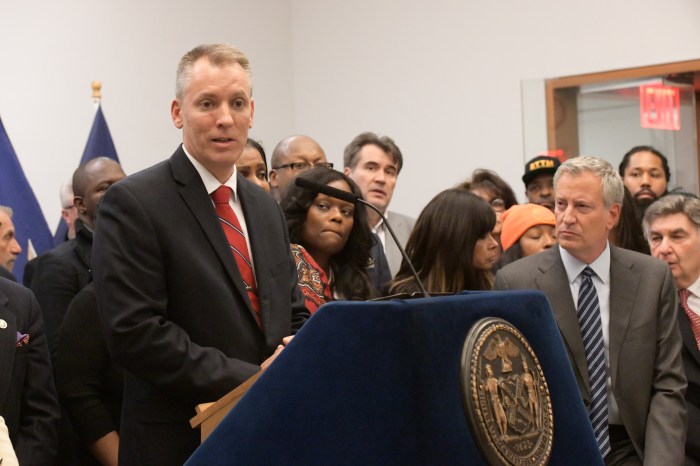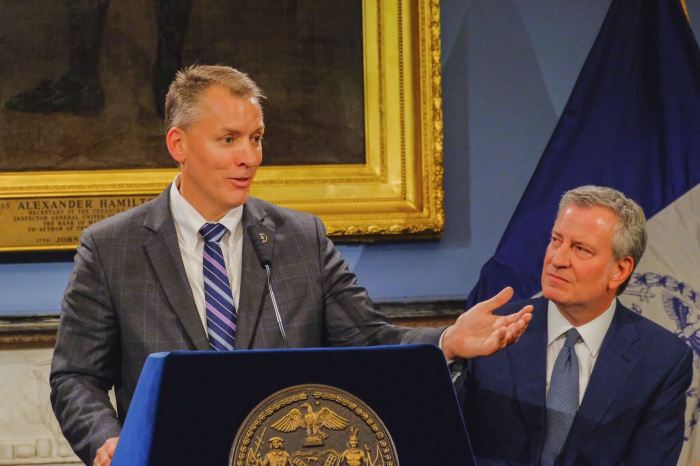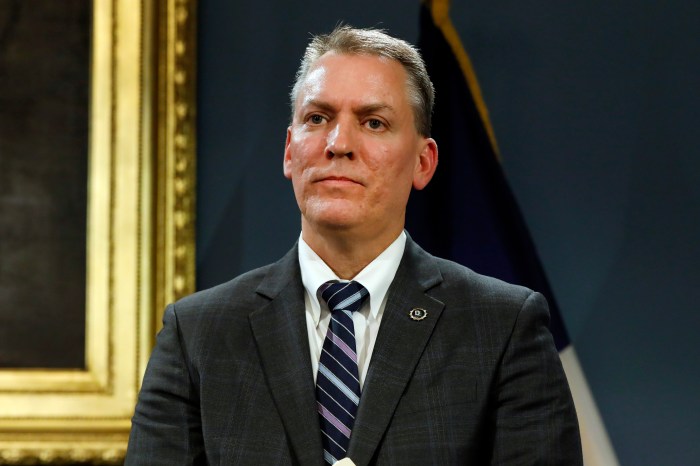New York City mayor-elect Eric Adams officially announced Keechant Sewell as the 45th NYPD Police Commissioner during an early morning press conference on Wednesday, less than one month before the Brooklyn Borough President takes office.
Sewell will make history next year as the first woman to lead the nation’s largest police force and take the reins during a time when the department hopes to mend strained public relations following the Black Lives Matter protests and concerns of rising crime in the Big Apple.
Making the news public at the Community Capacity center in Queensbridge Houses, a Long Island City neighborhood where the current Nassau County Chief of Detectives of 25 years and incoming top cop grew up, Adams beamed with pride as he gushed about Sewell’s resume to a legion of reporters.
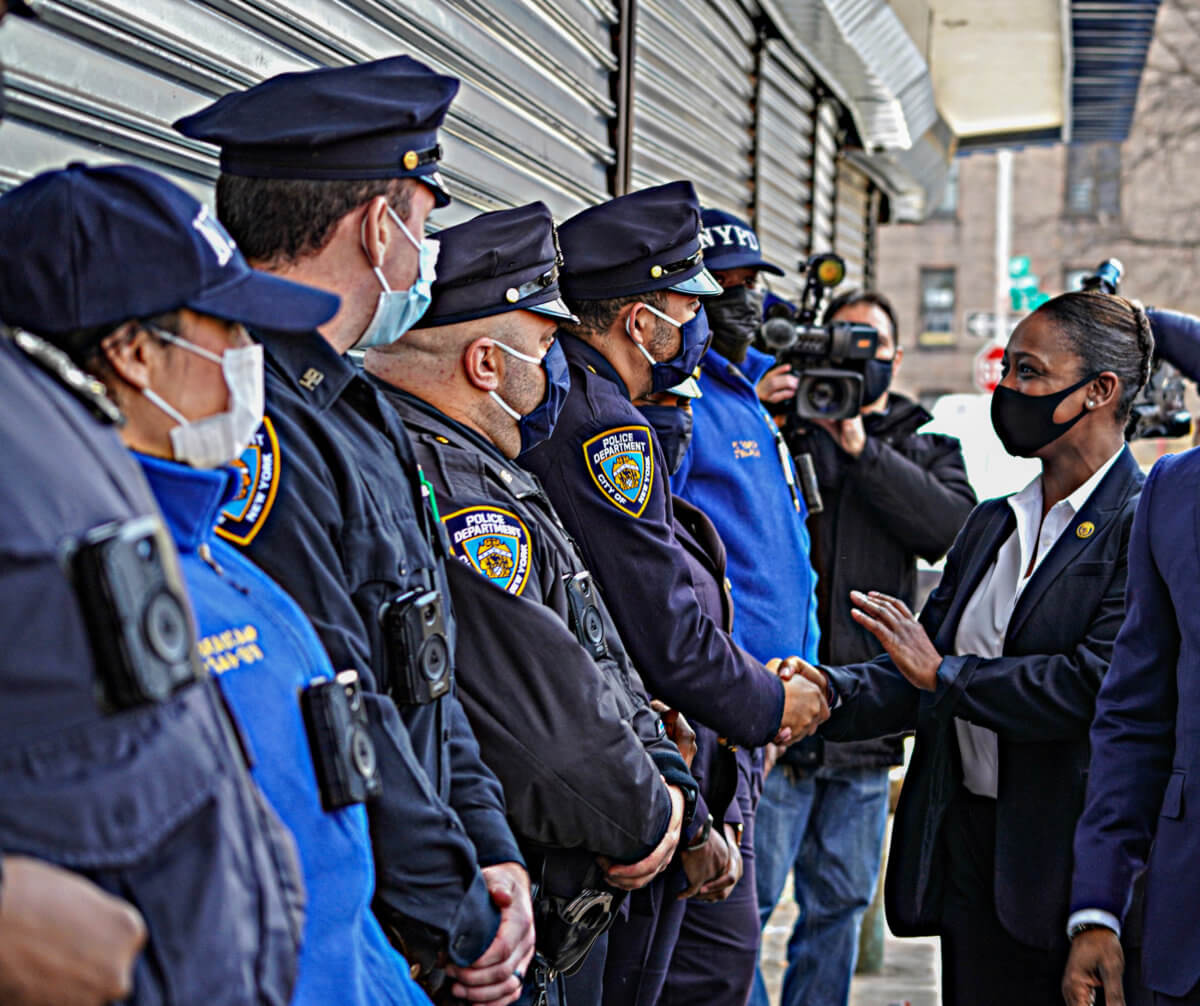
“The Chief of Detectives for the Nassau County Police Department, the first black woman to hold that role. And now she will make history again as the first woman to become commissioner of the largest police department in our country, if not the globe,” Adams said.
Directly below a mural of Malcolm X, he revealed that when he interviewed Sewell for the position and inquired why she wanted to join the NYPD, she responded: “My entire public safety career I was looking for a mayor like you, but guess what, your mayorship was looking for a police commissioner like me.”
“Your personal story and the message motivates me as we endeavor to provide New Yorkers with the public safety they need and the justice they deserve,” Sewell said Wednesday. “Queensbridge Houses is a part of my soul. I wish my parents were here to point out the building and the apartment where they began to give me a strong sense of purpose, commitment and confidence. To all the little girls within the sound of voice, there is nothing you can’t do and no one you can’t become.”
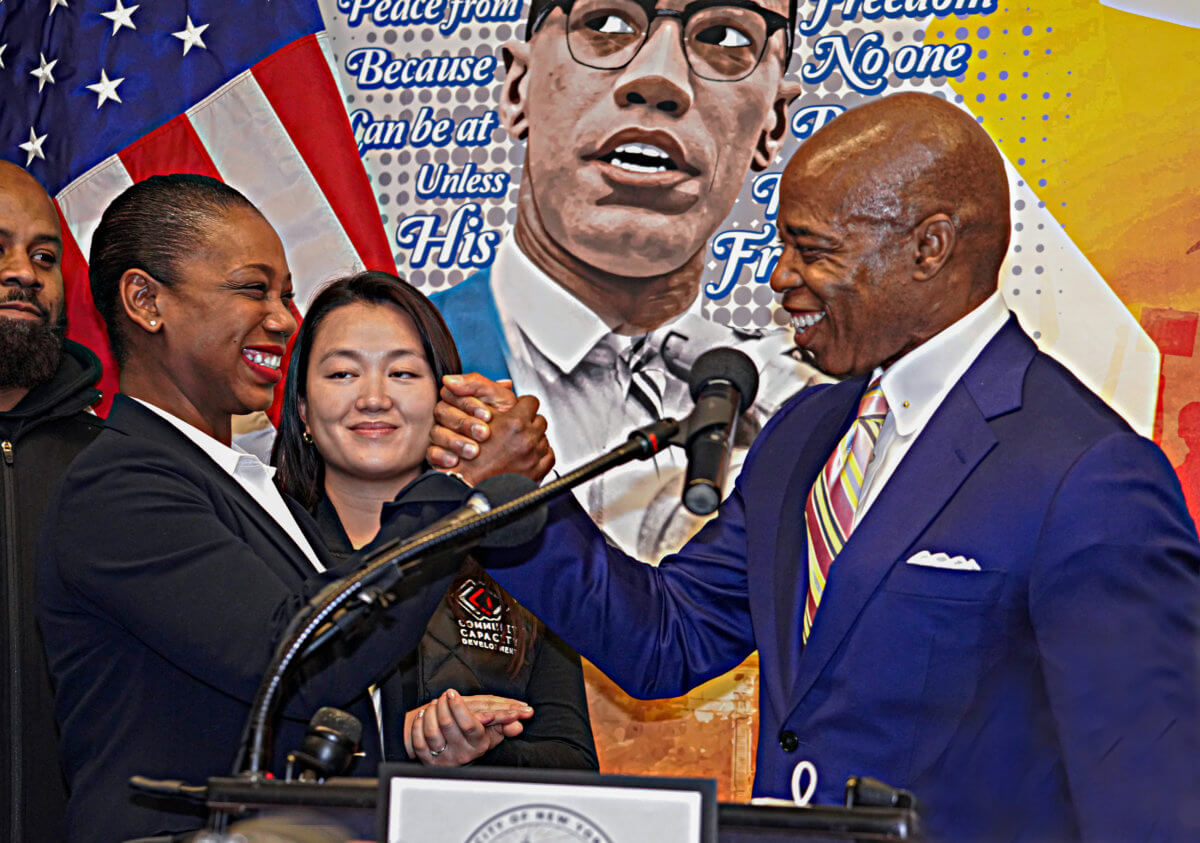
This news comes hot on the heels of several retirements from the NYPD, including high-ranking brass such as Chief of Department Rodney Harrison who has been tapped as the Suffolk County top cop, while current NYPD Commissioner Dermot Shea and First Deputy Commissioner Benjamin Tucker are also exiting after extended service.
Adams compared his search for police commissioner to a theory in quantum physics in which you acknowledge the existence of something and it becomes apparent to you — and he says that there has been so much talent in plain sight but has yet to be acknowledged.
“We have witnessed so many women who have conducted themselves in the professional way, yet never received the opportunity to do the job or the higher level always sitting on the bench, never allowed to get in the game. That is going to stop,” Adams said. “I made it clear on the campaign trail, I am going to find a woman police commissioner and I was not going to lower my standards. I gave my team a difficult task of finding someone with the qualifications, the abilities, understanding of policing, and who was on the ground.”
Adams shared he was more concerned in a police commissioner who he says has an emotional intelligence, not just academics and Ivy league school material.
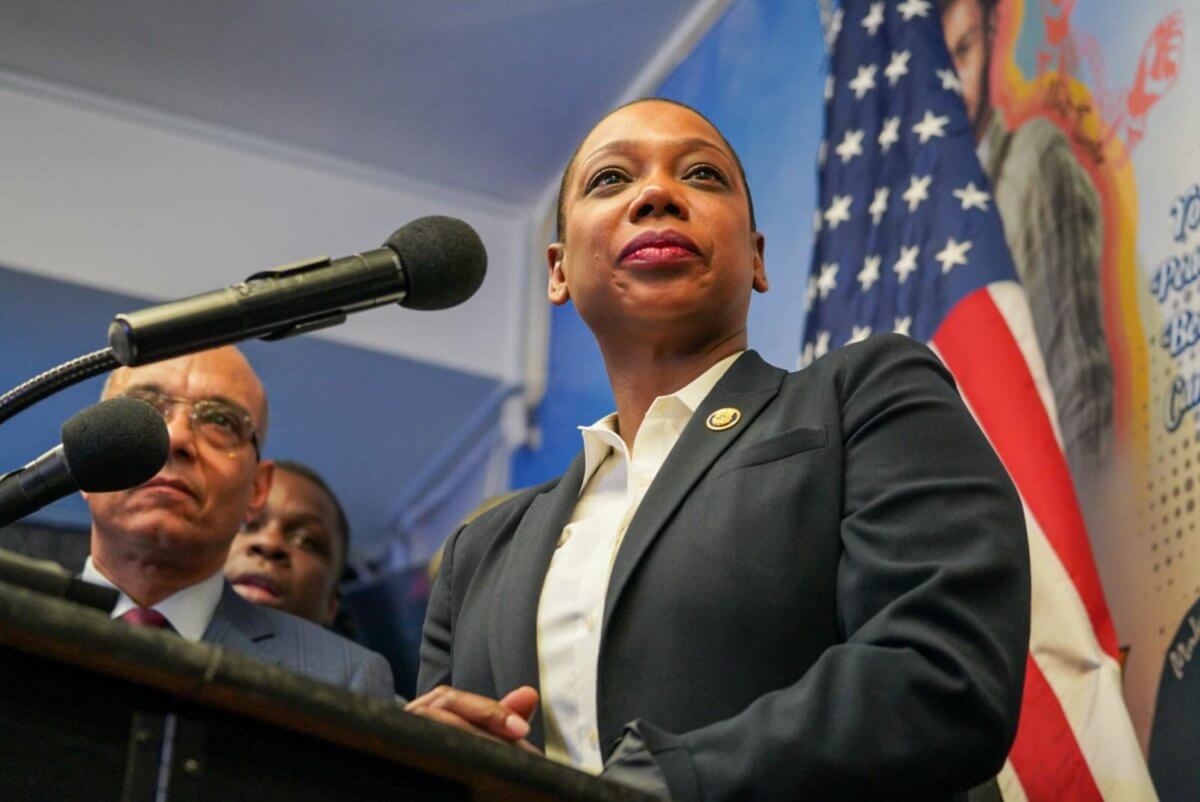
“How are you as a human being? Tell me about your emotional intelligence. A term we don’t use often that is the criteria to serve in an Eric Adams administration. You must not just be academically intelligent; you must be emotionally intelligent, and this is a personification of emotional intelligence. This amazing future police commissioner standing here,” Adams said.
He also discussed the success of a crisis management system, and the need for it to be implemented throughout high-risk areas in New York.
“We want to acknowledge and put in place that public safety is more than just police. If you want to make our city safer in the long run, it will require a new ecosystem of public safety,” the mayor-elect noted. “That is what we are going for and it’s going to partner with the crisis management system, clergy leaders, our tenant associations, and other partners on the ground and every agency in this city is going to be part of the team of making us safe and preventing crime in a real way. So, our new police commissioner not only brings a diverse set of experiences to this moment, she exudes what it means to be emotionally intelligent, calm, collected, competent.”
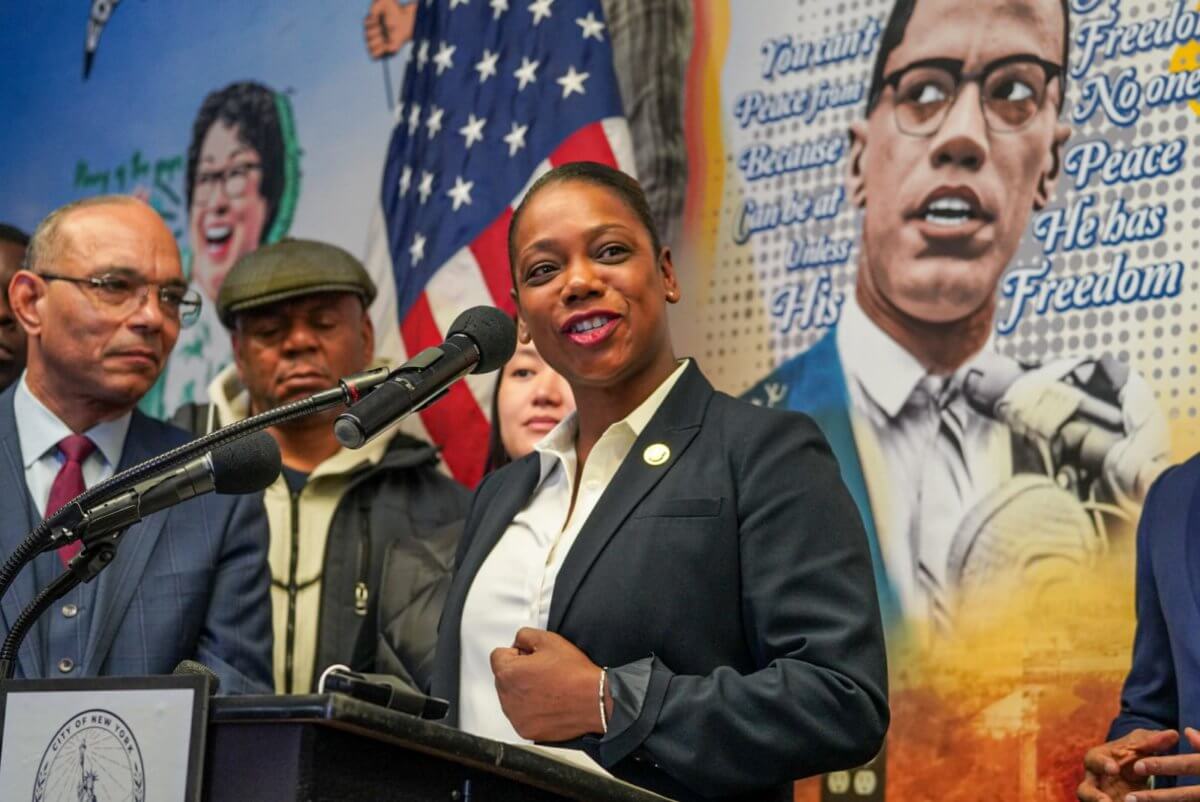
Both Adams and Sewell underscored that New York City is at a pivotal moment as it faces the challenges of public safety and accountability, which both stated, are not mutually exclusive.
Sewell promised that as she takes the role of police commissioner, she will follow in the mayor-elect’s vision of working with crisis management teams, build community relations, and lead with emotional intelligence.
“I am forever grateful in this city, in this moment, I have come full circle and it is with a humble heart and clear eyes about the tasks and challenges ahead that I accept the position of New York City Commissioner. I have been immersed in policing, in patrol law, to detective, my experience as a hostage negotiator with bringing transparency and accountability to policing up to and including my role as chief of detectives. I have watched and admired and worked alongside the remarkable members of the NYPD. It is an honor and privilege to stand with them now,” Sewell said.
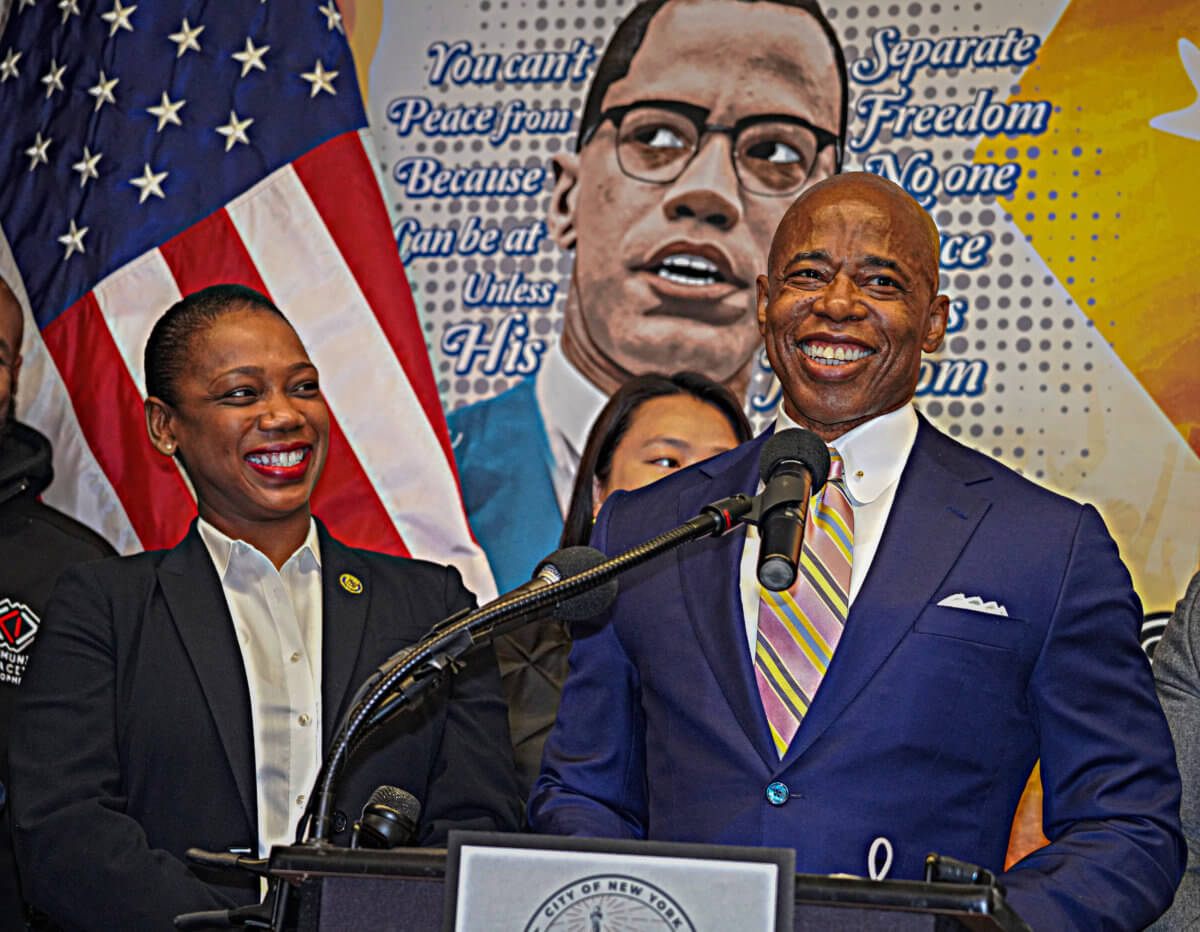
Several journalists criticized Sewell’s credentials, noting she is moving from a position commanding hundreds to what will soon be tens of thousands.
To this she replied: “Come and speak to me in a year.”
After speaking at Queensbridge, the mayor-elect and the new commissioner headed to speak at the scene of a fatal shooting at a deli in Flatbush, Brooklyn, which Adams said would become a regular occurrence during his mayoralty after violent incidents, as a means of projecting safety and security.
“You are going to see the most visible mayor in the history of New York,” Adams said. “I am not going to be in City Hall. It’s important to respond to incidents like this. As a platoon commander, if there was a shooting in NYCHA, the next day I would be sitting on a bench in the morning, let the city see that my city is safe. I think it’s crucial that we come out to this community.”
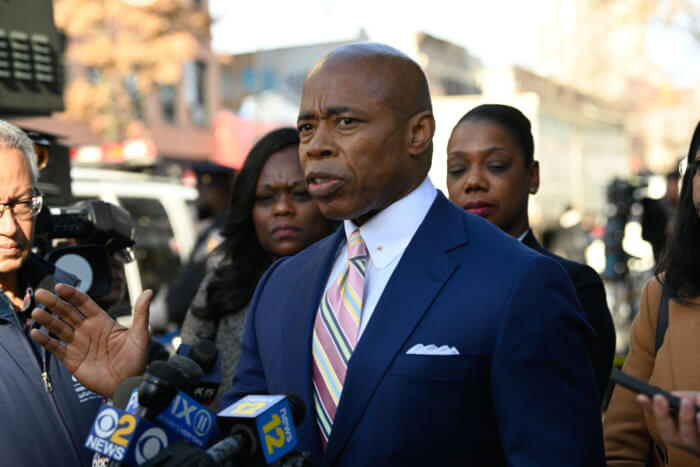
The mayor-elect has said that he wants to restore the NYPD’s controversial plainclothes anti-crime units, which were shuttered last year by Commissioner Dermot Shea after a long-history of complaints of excessive force and unreasonable stops. In an interview with the New York Post, Sewell echoed that sentiment, saying that plainclothes units work when well-trained officers use a “surgical approach,” but not when they “start busting heads.”
Adams said that the restored plainclothes units would indeed be laser-focused on infiltrating gangs and getting guns off the street, interventions that could potentially stop shootings like the one at the bodega, he said.
“It’s about proper balance, having the proper men and women assigned there, with a real mission, understand conflict resolution, not generated by just stopping anyone on the street,” Adams said. “Quality, precision policing. Far too often you hear shooting, the next sentence says ‘gang-related.’ We have a gang problem in this city, and we are going to zero in on those gangs.”
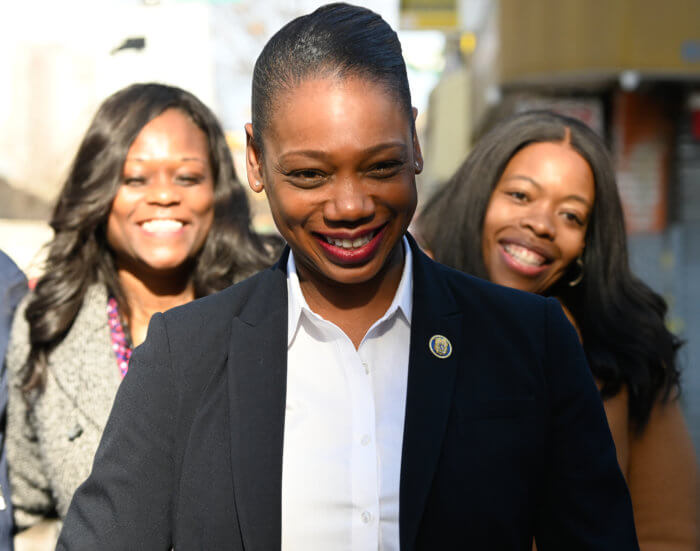
“It’s about immediately putting a team on the streets that’s going to zero in on gun violence,” Hizzoner-to-be continued.
Afterwards, the mayor-elect took a walk along Flatbush Avenue to introduce Brooklynites to the new commissioner, an activity he said he would be doing frequently, and which he compared to the similar walks taken by former Mayor John Lindsay in the 60s and 70s.
Adams said that he and the commish would be laser-focused on safety and keep out of politics: as such, he declined to take a position when asked if he supports a new law giving the Civilian Complaint Review Board authority to initiate investigations into police misconduct, nor the idea of the board eventually getting ultimate disciplinary authority instead of the Commissioner.
“We could like a law, we could dislike a law. The bottom line is, no matter what laws are in place, we need to operate within those laws and get our job done,” Adams said. “If the City Council makes a determination that CCRB can initiate investigations, they have the authority to do so. It doesn’t matter to me what laws are passed or not passed. Only one thing matters to me: I’m going to make my city safe.”
Additional reporting by Ben Brachfeld



